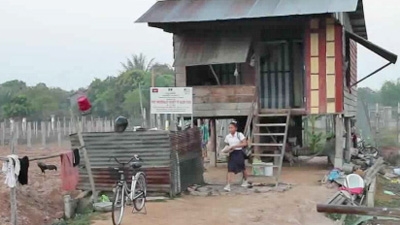Published: November 2013
Updated: November 2015
School in Cambodia is free, but uniforms, textbooks and notebooks are not. For poor families, the additional financial burden can make it hard for children to continue in school. With support from the World Bank, the Cambodian government launched the Secondary School Scholarship Program to help children from poor families stay in school. An impact evaluation, supported by SIEF, measured the effect of scholarships on enrollment in lower secondary school. The evaluation found not only that children who received the scholarship were more likely to stay in school, but also that a $45 scholarship was as effective as a $60 one. The evidence convinced the government to expand the program using the $45 rate; now, the government is also piloting scholarships for primary school students, and a merit-based scholarship that aims to boost learning quality.
Challenge:
Primary school completion rates in Cambodia are high—about 80 percent of girls and boys finish— but enrollment drops sharply in secondary school. Those who do enroll are at high risk of dropping out. A Cambodian government program sought to improve school enrollment and attendance through scholarships to poor students.
Evaluation:
Researchers worked with the Government of Cambodia to incorporate a rigorous impact evaluation into the new scholarship program. The evaluation sought to measure the effect of the program on enrollment, and also to test whether a $45 annual scholarship was as effective as $60. The evaluation compared attendance rates and school performance of students who were just above the cut-off poverty level to qualify for a scholarship with students who were just under the cut-off level and who did qualify.
Findings:
Providing a scholarship of $45 to each child was as effective as giving $60. Enrollment and attendance rates went up by 20 percentage points for both girls and boys. Families spent more on education- related items, such as books, and scholarship recipients were less likely to work for pay while in school. There was no sign their siblings were being taken out of school to work instead.
Impact:
The Cambodian government has expanded the scholarship program at the lower $45 amount and incorporated this into the country’s national scholarship program. It is now piloting a similar program for primary school students.
